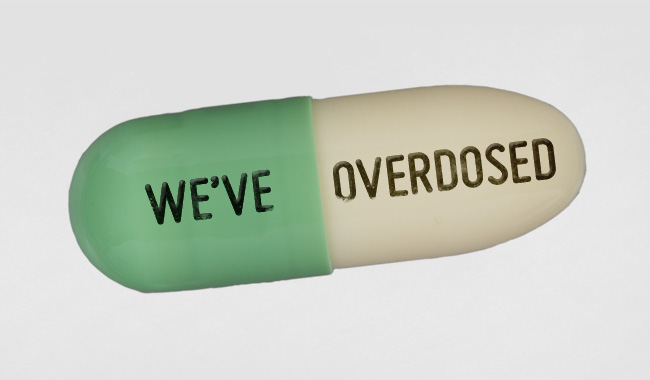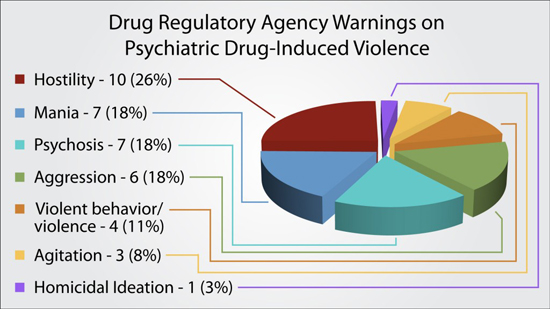By Kelly Patricia O’Meara
January 14, 2015
A new year, a new Congress and a new push for consideration of old mental health legislation that purports to fix a “broken” system yet, in all actuality, simply implements new federal programs and funding incentives intended to increase the number of Americans, including children and toddlers, being labeled as “mentally ill” and placed on psychiatric drugs. Moreover the legislation relies on psychiatry’s current diagnostic system, the billing bible of mental disorders, the Diagnostic & Statistical Manual of Mental Disorders (DSM). The DSM is so deeply flawed as a basis of diagnosis, that the head of the National Institute of Mental Health (NIMH) states “The weakness is its lack of validity” and “it is, at best, a dictionary, creating a set of labels and defining each.” So much for science. Nevertheless, the 2013 legislation (H.R. 3717): The Helping Families in Mental Health Crisis Act, introduced by Rep. Tim Murphy (R-Pa.), will be reintroduced in the 114th Congress, and, if passed, would create early screening laws, establish new federal bureaucracies (with a mental health Czar), and increased federal control over state mental health programs.

The mental health “screening” heavily promoted throughout the proposed legislation has already lead to 645,580 0-3 year olds being drugged for “mental or behavioral problems” in the U.S.
Among the most egregious elements of Rep. Murphy’s legislation is the push to diagnose and “treat” the nation’s youngest citizens. Specifically, the legislation would establish mental health/behavioral “screening tools” for children, including infants and toddlers “when behavioral health need is identified.” In other words, infants will be diagnosed mentally ill, using subjective behavioral criteria, with zero medical or scientific tests to validate the subjective and unscientific mental disorders. Such mental health “screening” of our most vulnerable has already lead to 645,580 0-3 year olds being drugged for “mental or behavioral problems” in the U.S. In fact, more than 1 million children aged zero to five are being prescribed psychiatric drugs, enough to fill the Rose bowl 10 times over. Murphy’s bill proposes to implement programs which will certainly skyrocket these numbers. With one in four Americans currently being prescribed psychiatric drugs, The Helping Families in Mental Health Crisis Act, will not only do nothing to abate the prescription drug epidemic we are currently facing, but will increase the number of Americans put at risk from psychiatric drugs documented by international drug regulatory warnings to have severe and life-threatening risks. Taking just one aspect of Murphy’s proposed legislation, the “suicide prevention and screening programs”— which are not only backed by pharmaceutical interests, but are documented to increase the number of children and adolescents being prescribed antidepressant drugs, despite the fact dozens of international drug regulatory agencies warn the drugs actually cause suicidal ideation.
Yet nowhere in this legislation does Rep. Murphy call for a review of the damaging drugs being prescribed to more than eight million children in the U.S., or the one-in-four Americans prescribed them, despite dozens of international drug regulatory warnings of suicide, violence, mania, psychosis, heart attack, stroke, diabetes, sudden death and more. Furthermore, among the many problematic provisions of Rep. Murphy’s bill is the establishment of a grants program to expand involuntary outpatient commitment, under which patients can be court-mandated to follow a specific psychiatric treatment plan, usually requiring drugs. Even the guaranteed privacy protections of health records will be shattered. According to the legislation: * HIPAA and FERPA (Family Educational Rights and Privacy Act) laws will be amended to allow disclosure of health and education records to caregivers if the health care provider reasonably believes disclosure “will protect the health, safety or welfare” of the individual.

Among the many problematic provisions of Rep. Murphy’s bill is the establishment of a grants program to expand involuntary outpatient commitment, under which patients can be court-mandated to follow a specific psychiatric treatment plan, usually requiring drugs.
“This proposal targets the rights of individuals… and restructures federal funding to heavily encourage the use of force and coercion. It also would reduce privacy protections and rights advocacy.” – Curt Decker, Executive Director, National Disability Rights Network As for the mental health “screening programs” which are the foundation of Murphy’s bill to be implemented through primary care doctors for use on children, the elderly and Veterans, it relies on the same flawed, and recently disgraced, billing bible, the Diagnostic and Statistical Manual of Mental Disorders (DSM). Director of the National Institute of Mental Health, Thomas Insel, explained the problems associated with the DSM when he wrote, “Unlike our definitions of ischemic heart disease, lymphoma, or AIDS, the DSM diagnoses are based on a consensus about clusters of clinical symptoms, not any objective laboratory measure.” Even the “smartest guys” in the mental health room understand the subjective nature of psychiatric diagnosing, yet Rep. Murphy’s bill does not address this fundamental flaw that underlies his entire mental health proposal. For example, Dr. Allen Frances, professor emeritus of psychiatry, Duke University, and chairman of the task force to revise the DSM-IV, said the DSM5 “will dramatically expand the realm of psychiatry and narrow the realm of normality—converting millions more people from being without mental disorders to being psychiatrically sick.”  More direct and to the point, Frances has said of psychiatric diagnosing “It’s bullshit. I mean, you just can’t define it.” Frances has even gone so far as to admit that the “false epidemic” of ADHD, Bipolar Disorder and autism was created. The entirety of the 135-page bill is little more than a mental health power-grab, greatly expanding mental health screening and diagnosing. Yet it provides little in the way of individual protections from intrusive and over-reaching federal mandates. More importantly, lawmakers need to understand that this costly (up to $270 million a year) legislation is flawed from the get-go, failing to address one simple fact: it assumes psychiatric diagnosing is based in science. It is not. Therefore, any mental health screening and “treatment” recommendations flowing from this inaccurate assumption are equally, and dangerously, flawed. Clearly the best and brightest in mental health understand the problems associated with accurate psychiatric diagnosing. If the intent is to actually help those with mental illness, then there are serious questions that need to be answered about the legitimacy of psychiatric diagnosing before lawmakers consider instituting new, costly, and intrusive, mental health legislation.
More direct and to the point, Frances has said of psychiatric diagnosing “It’s bullshit. I mean, you just can’t define it.” Frances has even gone so far as to admit that the “false epidemic” of ADHD, Bipolar Disorder and autism was created. The entirety of the 135-page bill is little more than a mental health power-grab, greatly expanding mental health screening and diagnosing. Yet it provides little in the way of individual protections from intrusive and over-reaching federal mandates. More importantly, lawmakers need to understand that this costly (up to $270 million a year) legislation is flawed from the get-go, failing to address one simple fact: it assumes psychiatric diagnosing is based in science. It is not. Therefore, any mental health screening and “treatment” recommendations flowing from this inaccurate assumption are equally, and dangerously, flawed. Clearly the best and brightest in mental health understand the problems associated with accurate psychiatric diagnosing. If the intent is to actually help those with mental illness, then there are serious questions that need to be answered about the legitimacy of psychiatric diagnosing before lawmakers consider instituting new, costly, and intrusive, mental health legislation.
Kelly Patricia O’Meara is an award-winning former investigative reporter for the Washington Times’ Insight Magazine, penning dozens of articles exposing the fraud of psychiatric diagnosis and the dangers of the psychiatric drugs—including her ground-breaking 1999 cover story, “Guns & Doses,” exposing the link between psychiatric drugs and acts of senseless violence. She is also the author of the highly acclaimed book, Psyched Out: How Psychiatry Sells Mental Illness and Pushes Pills that Kill. Prior to working as an investigative journalist, O’Meara spent sixteen years on Capitol Hill as a congressional staffer to four Members of Congress. She holds a B.S. in Political Science from the University of Maryland.





SHARE YOUR STORY/COMMENT